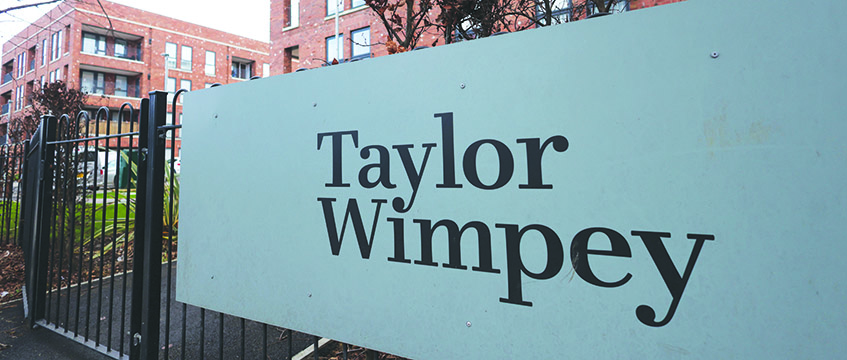Devon Commercial Property Ltd v Barnett and another
Judge Paul Matthews (sitting as a High Court judge)
Mortgage – Power of sale – Receiver – Breach of duty – Defendant chartered surveyors being appointed as receivers of property under mortgage – Claimant mortgagor bringing proceedings against defendants in connection with sale of property – Whether defendants acting in breach of duty – Claim dismissed
On 18 August 2005 the claimant company acquired freehold land known as The Bottling Hall, Distribution Depot and Offices, Howden, Tiverton, Devon. The claimant leased an area of about 70% of the property to DCC (a connected company) for a term of five years from 24 June 2005 at a rent of £370,000 per annum. DCC used the land to run a cider production, bottling and distribution business. In July 2007, the claimant granted a mortgage of the property to S.
In September 2009, DCC went into administration, The administrators sold its business to A and granted a licence for A to use the land within the lease. S assigned the mortgage to A. By December, the claimant had defaulted on the interest payments due under the mortgage. A served a default notice and appointed the defendant chartered surveyors as receivers in respect of the property under the mortgage. In May 2011, the property was sold to F (a new subsidiary of A) for £2.75m. There was no surplus on the sale of the property returnable to the claimant as mortgagor.
Mortgage – Power of sale – Receiver – Breach of duty – Defendant chartered surveyors being appointed as receivers of property under mortgage – Claimant mortgagor bringing proceedings against defendants in connection with sale of property – Whether defendants acting in breach of duty – Claim dismissed
On 18 August 2005 the claimant company acquired freehold land known as The Bottling Hall, Distribution Depot and Offices, Howden, Tiverton, Devon. The claimant leased an area of about 70% of the property to DCC (a connected company) for a term of five years from 24 June 2005 at a rent of £370,000 per annum. DCC used the land to run a cider production, bottling and distribution business. In July 2007, the claimant granted a mortgage of the property to S.
In September 2009, DCC went into administration, The administrators sold its business to A and granted a licence for A to use the land within the lease. S assigned the mortgage to A. By December, the claimant had defaulted on the interest payments due under the mortgage. A served a default notice and appointed the defendant chartered surveyors as receivers in respect of the property under the mortgage. In May 2011, the property was sold to F (a new subsidiary of A) for £2.75m. There was no surplus on the sale of the property returnable to the claimant as mortgagor.
The claimant brought proceedings alleging that the defendants had acted in breach of a number of important duties, including a duty to act in good faith, to exercise their powers for the sole purpose of securing repayment of the debt owed to the mortgagee and not to place themselves in a position of conflict or potential conflict, and a duty to take reasonable steps to obtain the best price reasonably obtainable at the material time, taking steps to market the property.
Held: The claim was dismissed.
(1) A breach of the duty of good faith owed by a receiver to the mortgagor had to involve intentional conduct amounting to more than mere negligence, and encompassing either an improper motive or an element of bad faith, but it need not amount to dishonesty. The mortgagee had no duty to exercise his powers to sell, take possession or appoint a receiver or otherwise to preserve or improve his or her security. But if the mortgagee did take possession, he or she assumed a duty to take reasonable care of the property. Although the mortgagee owed no duty to the mortgagor to sell at any particular time, and was not bound to postpone in the hope of obtaining a better price, if he or she did exercise the power of sale the mortgagee would owe a duty to the mortgagor to take reasonable care to obtain a proper price at the time of the sale. A receiver of the mortgaged property appointed by the mortgagee owed the same duty to the mortgagor as the mortgagee in relation to sale of the property but a receiver had no right to remain passive if to do so would damage the interests of the mortgagor or the mortgagee. A receiver exercising the powers of sale and management conferred on him or her by the mortgage was doing so for the purpose of securing repayment of the debt owing to the mortgagee. Therefore, he or she had to exercise those powers in good faith and for the purpose of obtaining repayment of the debt. It was sufficient if at least one of the purposes for which the power was exercised was a proper one. In that context, a proper purpose was one to protect or realise the security or otherwise to secure repayment of the debt. That was what the security was granted for: Cuckmere Brick Co Ltd v Mutual Finance Ltd [1971] Ch 949, Downsview Nominees v First City Corporation [1993] AC 295, Medforth v Blake [1999] 2 EGLR 75, Silven Properties Ltd v Royal Bank of Scotland plc [2003] 3 EGLR 49, Meretz Investments NV v ACP Ltd [2007] Ch 197; [2002] PLSCS 26 and Horn v Commercial Acceptances Ltd [2011] EWHC 1757 (Ch) considered.
(2) Where the mortgagee appointed a receiver, and the receiver exercised the power of sale to sell to the mortgagee’s associate, there was no self-dealing, and the receiver did not have the same interest as the mortgagee in minimising the price. The receiver’s interest lay in performing the role properly so as to earn fees. Those fees were earned whether the price was high or low, so long as reasonable care was taken that it was a proper one. Thus, the receiver in a case where the sale was to an associate of the appointor did not have a conflict of duty and interest as such. In the present case, the defendants did not put themselves into a position of conflict of duty and interest by allowing a company in which the appointor was interested to buy the property.
(3) With the minor exception of certain misleading emails which had not been shown to have caused any loss, there was nothing in the evidence to suggest bad faith or improper purpose on the part of the defendants. Moreover, there were other emails which showed the defendants’ good faith and independence from A in the conduct of the receivership. In substance, the defendants had not been shown to have acted in breach of their duty of good faith or for an improper purpose.
(4) On the evidence, no breaches of duty to take reasonable care to obtain a proper price had been established. It was not a breach of their duty that the defendants failed to obtain better terms from A in the commercial negotiation they carried out. They were entitled to grant the new lease when they did and to sell the property when they did. They took reasonable steps to obtain a proper price both in relation to the lease and ultimately in the sale. The fact that the defendants might have done better if they had left the property vacant, or leased or sold at a different time, even if correct, was irrelevant: Cuckmere Brick Co Ltd and Raja v Austin Gray (a firm) [2003] 1 EGLR 91 considered.
Hugh Sims QC and Neil Levy (instructed by Michelmores LLP) appeared for the claimant; Simon Davenport QC and Daniel Lewis (instructed by Kennedy’s Law LLP) appeared for the defendants.
Eileen O’Grady, barrister
Click here to read a transcript ofDevon Commercial Property Ltd v Barnett and another










